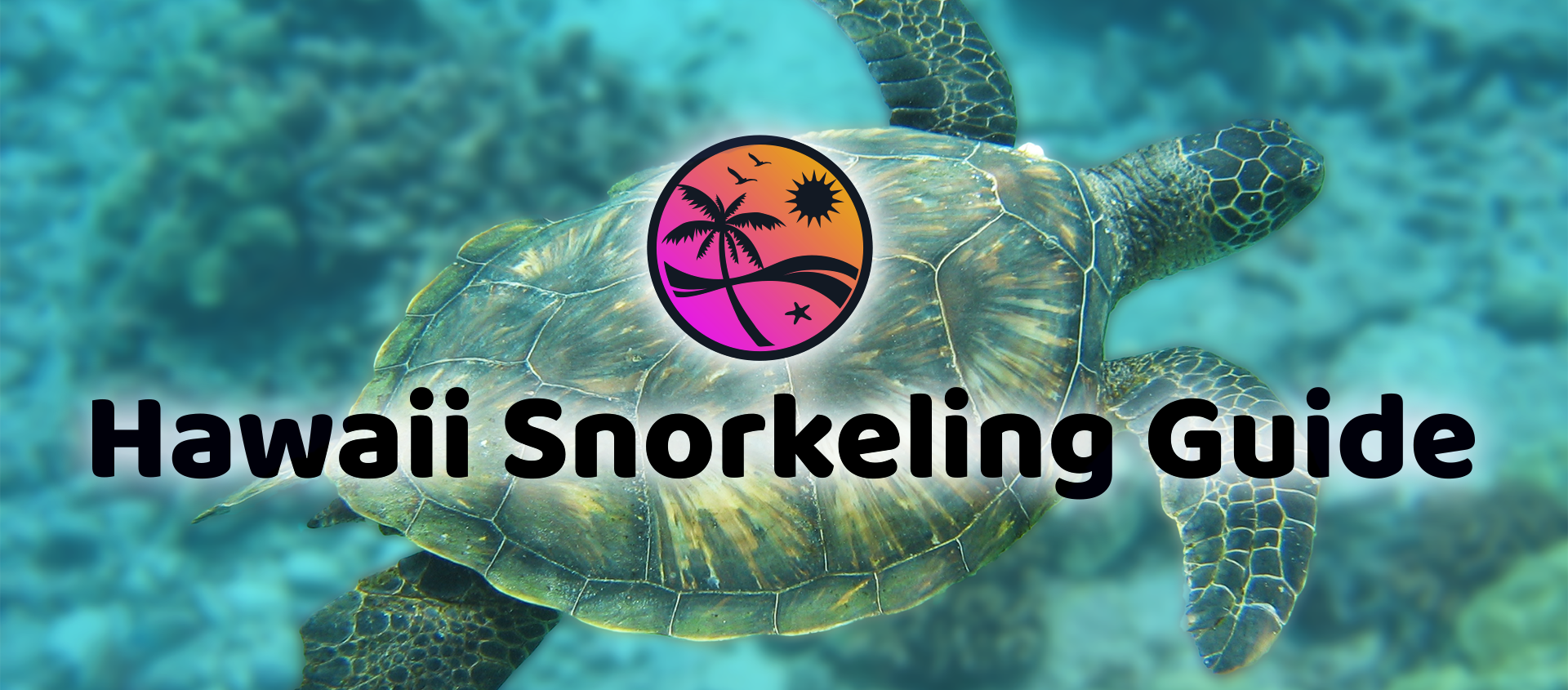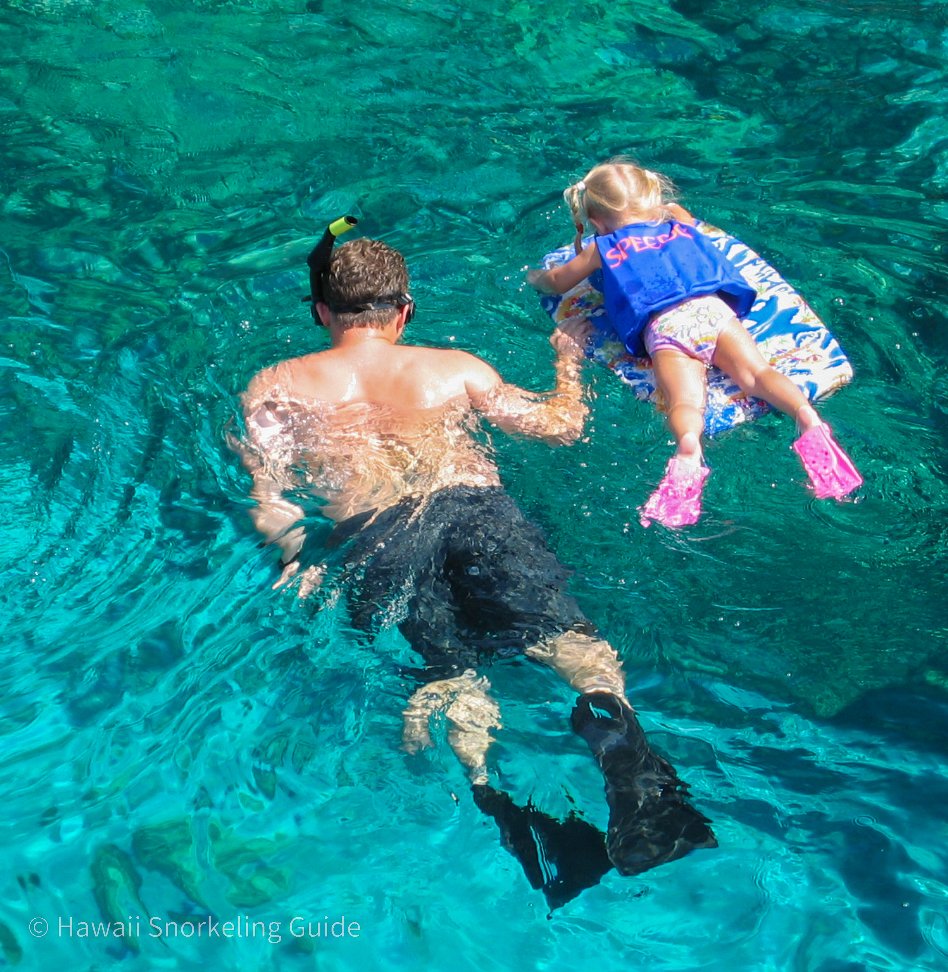Here’s my best Hawaii snorkeling tips
Never snorkel alone. No matter how wonderful the ocean conditions may seem, always snorkel Hawaii with a buddy.
Never turn your back to the ocean. This is the first rule of the sea my father taught me. No matter how calm the ocean looks, it is always unpredictable. If you’ve spent enough time around the ocean you know that ‘freak waves’, despite the name, are common place. Here in Hawaii we are blessed with some of the best weather around, just be aware of the ever moving ocean, ok.
I know you’re in Hawaii on vacation… and I know you want to sleep in… but whenever possible snorkel in the morning. Fish are significantly more active in the morning so you’ll get to see a lot more of the marine life. Also the predictable afternoon winds make the water clarity less than ideal.
Most marine life congregate around structure. Whether it be coral, lava rock, or man-made objects, aquatic life find food and safety near structure. Most fish won’t venture far from the safety of the reef. When you see large expanses of sand think: Mojave Desert for Fish. Only the fastest or sneakiest of sea life make their homes out in the open. Neither of which is fun to look for when snorkeling. If you want to see the most sea life possible, snorkel around some kind of structure.
Here’s some snorkeling math: Sandy bottom + wind = poor visibility. As wind blows across the ocean’s surface it creates current. If the wind is strong enough or the water is shallow enough, the current will stir up the ocean floor. Sand and other particles on the bottom get kicked up and make the water cloudy. When it comes to ocean visibility, the less wind the better. Snorkeling in the mornings and over the reef will help make this equation work in your favor.
Even on the cloudiest of days, use waterproof sunscreen. The Sun’s UV rays penetrate the thickest of cloud cover. Why spend your vacation having to gingerly wiggle into your new aloha shirt because you have sunburn? Most cameras today have a setting to reduce red eye. I’m not sure they have a setting to fix that bright red cooked lobster look. Trust me, take the sunscreen.
Whenever possible, inquire about the days beach conditions. Ask the life guard or just someone on the beach. Ocean conditions can change so quickly, it’s always a great idea to ask someone about the water visibility, current, waves, etc. I can’t tell you the amount of times I’ve gotten a tip from someone who just came out of the water about a beautiful school of fish, a feeding turtle, or spectacular hidden coral head. Make it easy on yourself, get the inside scoop before you jump in.
Take a small cooler with bottled water, snacks, and food. Most beaches don’t have concession stands. Even when they do, they are notoriously expensive. Go to Wal-Mart, stock up your cooler with the goodies you like. You’ll be the envy of all the other beach goers.
Snorkeling isn’t so much about swimming as it is about floating, stay relaxed. You’ll save a lot more energy if you just float, only kicking when needed. Think of yourself gliding rather than swimming. The extra oxygen you save will allow you to hold your breath longer when you decide to dive down for a closer look at the reef. The more relaxed you are in the water the more relaxed the fish will be too. Relaxed fish will allow you to swim much closer.
This is not so much of a Hawaii snorkeling ‘tip’ as an imperative… Be respectful of the ocean. Avoid standing on coral. Even though coral may feel like rock, it is not. Coral is the foundation of Hawaii’s reef environment and is a marine animal just like a fish or a turtle. All sea creatures rely on the reef for homes, protection, and food. Broken coral takes many years to grow back. Oh yeah, please remember to pick up your trash so everyone may enjoy snorkeling Hawaii for years to come.
Do’s and Dont’s of Child Safety:
Supervise all young children while they are in, on, or near the water. Drownings and near-drownings occur in familiar surroundings during very short lapses in supervision. Many incidents happen in shallow water close to shore.
Do not have older siblings watch younger children in the water. They are not trained or mature enough to be given such a responsibility.
Do not rely on flotation devices or swimming lessons to protect a child. Children are not waterproof.
Hawaii’s beaches are some of the most beautiful in the world. Use these Hawaii snorkeling tips to safely enjoy them to their fullest.

